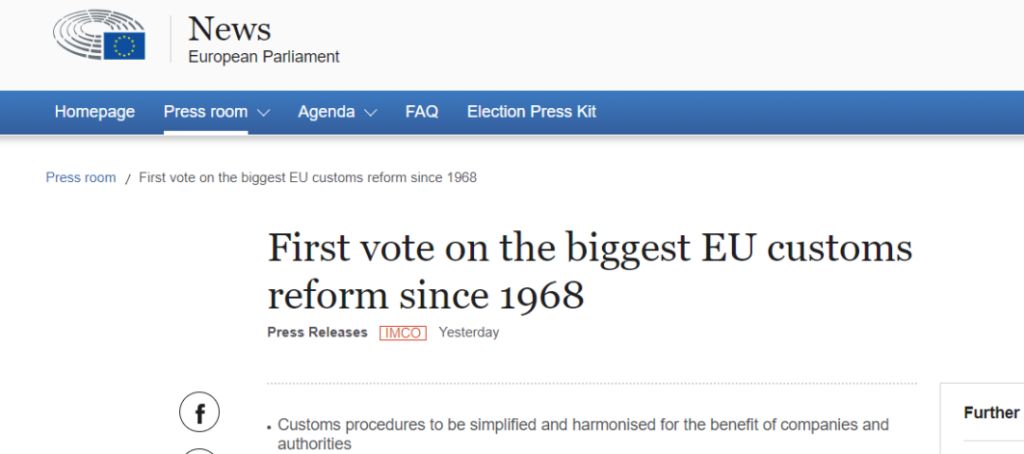Read more articles here.

Go to the EP news page from here.
The Comprehensive Guide to EU Customs Reform Impact on E-commerce
The European Union is on the brink of what might be its most significant customs reform in over 50 years, sparked by the first vote on a draft position for EU customs law reform by the Internal Market and Consumer Protection Committee (IMCO). This unanimous approval (34 votes in favor, none against, and 5 abstentions) sets the stage for further discussions and a potential vote in the European Parliament plenary session expected next month, with additional follow-up by the newly elected Parliament post the June 6-9 European elections.
This draft aims to address the escalating pressures faced by customs authorities due to the exponential growth of e-commerce and the introduction of numerous new product standards, bans, obligations, and sanctions by the EU in recent years.

Described as the EU’s largest customs reform since 1968, this initiative seeks to modernize and streamline customs operations, partly in response to the challenges and opportunities presented by the rapid expansion of cross-border e-commerce. The reform focuses on aspects such as taxation, compliance, and the efficiency of customs checks, aiming to tackle revenue loss from undervalued e-commerce shipments and ensuring products entering the EU market meet safety standards.
Significant changes include stricter scrutiny to combat tax evasion strategies exploiting the VAT exemption for goods under €150, enhancing the detection of non-compliant products, and establishing a more efficient customs check process for trustworthy companies. Additionally, the introduction of an EU data center is proposed to facilitate the submission of information to customs, replacing over 111 independent customs-related IT systems across Europe, which could simplify processes for sellers while ensuring tighter control and transparency.
This reform represents a critical step towards adapting EU customs to the modern digital and global trade environment, potentially simplifying cross-border selling procedures but also imposing stricter, more modern management practices on sellers regarding taxation and product compliance.